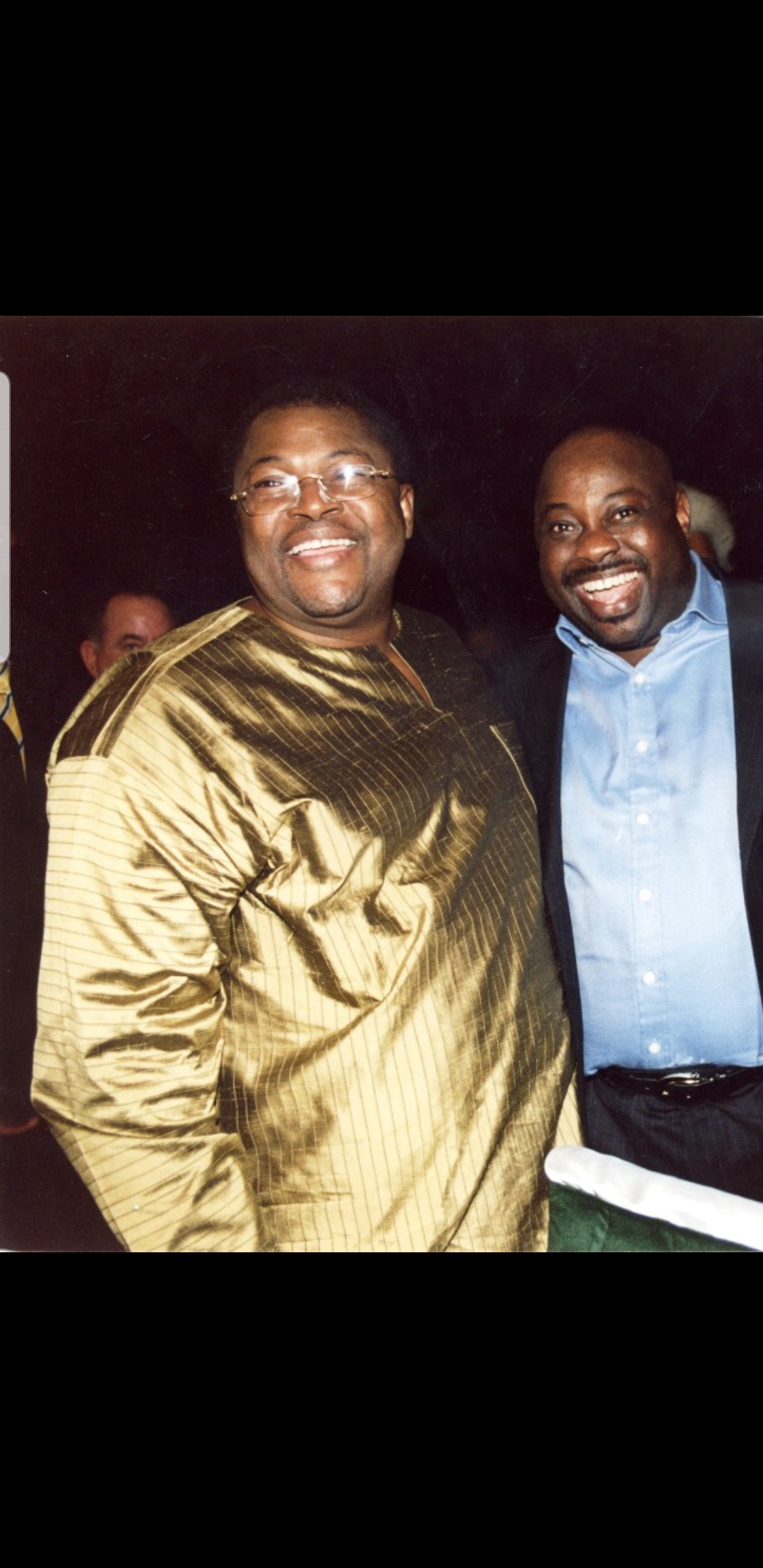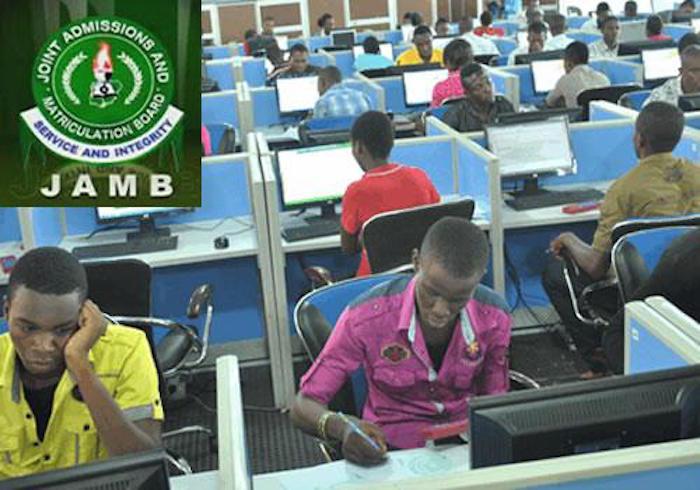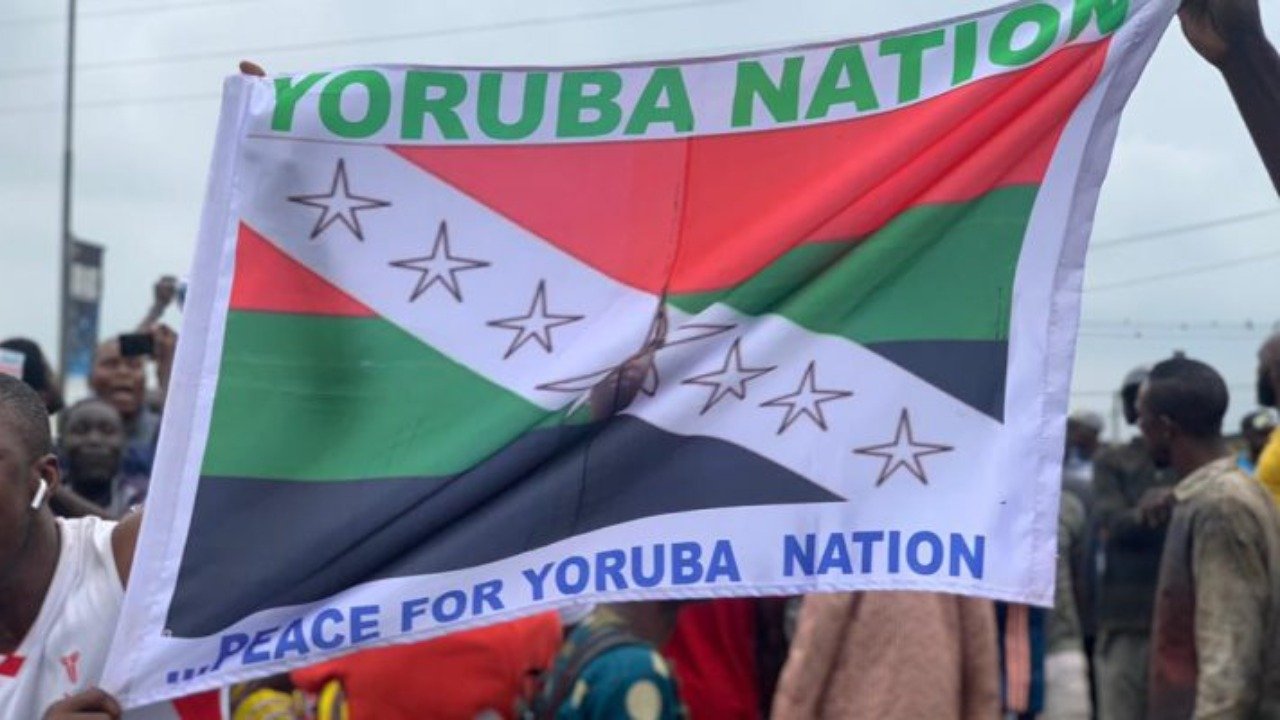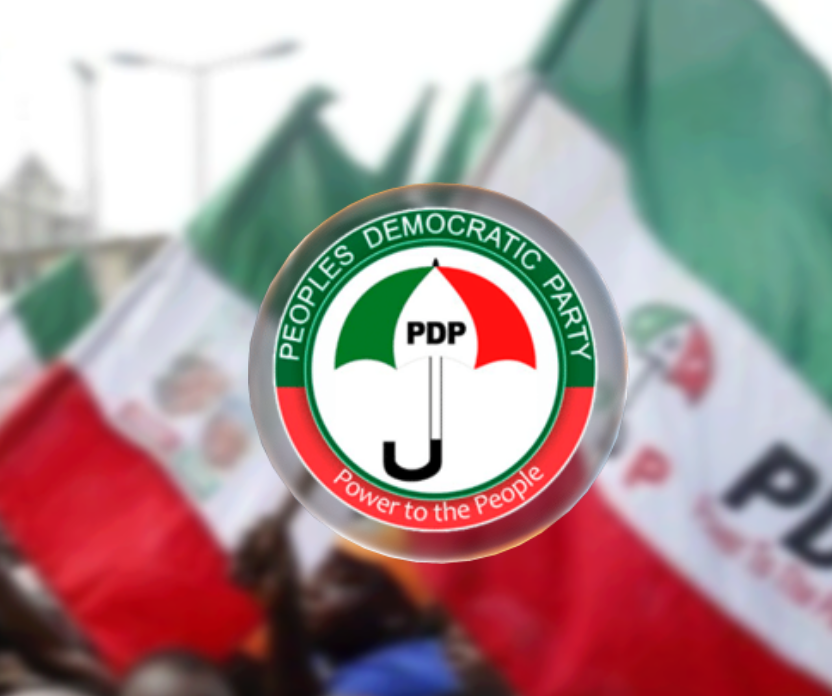Fellow Nigerians, if you’ve followed my trajectory over time, you would probably agree that God has been extremely kind to me. My journey is full of many lessons of life. For me, one of the best possessions a man can have is to be surrounded by good and great people. At different stages, I have been richly blessed by many amazing friends and mentors. Oftentimes, I wonder if there is a magnet on my body that attracts the best of the best to me. I deliberately left out some of my biggest encounters with life changers last week, because I wanted to deal with them together, rather than create some kind of suspense. Let me now demonstrate how blessed I have been.
I had arrived Lagos to search for a full-time job in April 1988, immediately after my Master’s programme at the Obafemi Awolowo University, Ile-Ife. I was desperate because I was the only jobless one out of all my close friends. For my dear Mum, it was as if there was a jinx to be broken. One of the first friends I made was a young publisher, Nduka Obaigbena, who was publishing Thisweek magazine at the time. I had gone to see his Editor, Lanre Idowu, who offered to introduce me to him. I was already known in media circles by then and Nduka asked me to write a piece for Thisweek on the spot. He paid me one hundred naira, the highest fee for a single article at the time. I must say, it was big money for that time. But that was not the main issue, which was that an immediate bond was created, and we’ve been friends ever since.
Nduka played many other roles thereafter. My first trip outside Nigeria was in 1985, when I travelled to England to visit my older brother, Dr Oladele Bolarinwa Ajayi, who was teaching Engineering Physics at the University of Surrey in Guildford. Nigerians didn’t require visa at the time. Buhari was in power and I was able to procure my basic travel allowance (BTA) of one hundred naira (commission on it was ten naira only) on the day of travel from the International Merchant Bank, on Awolowo Road, Ikoyi, and the Managing Director of the bank, Mr Odunayo Olagundoye, a very good friend of my brother, was very helpful. I flew out the same evening on British Caledonian Airways. I enjoyed this first trip to England tremendously. It was an unforgettable experience for me. I was able to observe first-hand those things and places I had only imagined and envisioned from reading about them in books. I immediately learnt that education was not complete without exposure to different cultures and behaviour and that there is great sense in the adage that until you see another person’s farm you will believe that your father’s farm is the biggest. It is such myopic views that continues to imprison and enslave our present crop of leaders and denies our country the chance to rise to the greatness that all of us believe it deserves.
My next journey abroad was travelling in 1991 at the instance of Nduka Obaigbena, who contracted me and my friend and colleague, Uzor Maxim Uzoatu, to fly to London to do a project on President Ibrahim Babangida. Nduka got us our first visas, bought our tickets, put us in a rented apartment, Arabella Court, in upscale St. John’s Wood. After that trip, my life was never the same again. It was on that trip, I had to go and meet Chief Moshood Abiola, by pure chance and luck as I did not know he was in England during that period. The entire process of arranging and meeting with him was an experience of a lifetime. I have previously told the story of being at Stratford station when he asked to see me after phoning his house to speak to his son Ayodeji. My inclination was to take a cab to his Chester Terrace, Regents Park, home, but he insisted I take the Tube, the London Underground, if I was to meet with him, as this was a faster means of transport and he was only in a London for a very short time. I realised that when there is something important to do, style and fancifulness have no role. You simply get down to brass tacks and do what has to be done with the tools that are immediately available to you. Strike whilst the iron is hot, or you will have yourself to blame. Despite his great wealth, MKO was a simple and common man. He travelled on any form of transport, including public transport, as it suited him and his busy itinerary.
My next trip to the United Kingdom gave birth to yet another everlasting relationship. It so happened that the First Lady, Mrs Maryam Babangida, was receiving the Hunger Project Award alongside the Kenyan environmentalist, Professor Wangari Mathai, and many distinguished Nigerians were present. Nduka Obaigbena had called up the Nigerian High Commissioner, Mr Dove Edwin, to secure me a seat at the event. Unknown to me, one of Africa’s greatest entrepreneurs, Dr Mike Adenuga Jr. was sitting quietly and unobtrusively. Someone had tapped me gently, but I couldn’t see the face perfectly. The man turned out to be The Guru, also known as The Bull, or The Spirit of Africa (the moniker I coined for him). He requested for my number in London. One of his aides called the following day requesting to pick up a parcel from Chairman at an apartment in Pimlico, and I was dazed by the gift he left for me. My dear friend, Senator Gbenga Obadara, had offered to drive me that night. Since then, the Spirit of Africa has been an unmatchable benefactor in too many ways, and I’ve learnt so much at his desk, about simplicity, loyalty and benevolence. The Guru is an enigma. He is many things to many people, but his life, lifestyle and principles are worthy of detailed study and analysis, because there are many lessons to be learnt. I can write a magnum opus on our almost surreal encounters, and I will leave that for the big book which I will soon write.
Let’s rewind a bit. I had met and struck friendship with the actor, Richard Mofe-Damijo, about the same day I first met Nduka Obaigbena in April 1988. Richard was also a reporter at the National Concord newspaper when I was also a Staff Writer at the African Concord magazine, owned by Chief Moshood Abiola. I later met the late May Ellen Ezekiel who subsequently became Richard’s wife. Before their talk-of the-town wedding, I had joined Classique magazine, which was substantially owned by May Ellen (may her soul continue to rest in peace). That is another story for another day. I started that job for May in May 1990, on the eve of my 30th birthday on May 16 (which was hosted by the iconic realtor, Senator Ayodeji Otegbola), and I was well advertised as the highest paid Editor in Nigeria. May had told me she gave me that job because of my writing skills and prowess, my solid contacts in society and celebrity reporting as well as my effortless abilities to write both hard and soft sell news with equal dexterity and ease.
I resigned from that lucrative job in 1991 for a variety of reasons, and became a bread-seller, distributing Chief Moshood Abiola’s Wonderloaf. I had been asked to drop my official car and driver by Classique and I complied pronto. Nothing is more precious to me than integrity and I could not see myself holding onto something that had not been given to me even though I believed I deserved it as part of my severance package. My life, interestingly, is full of twists and turns. Miraculously, I got another car in no time. The Wonder Bakery Manager at the time, Chichi Ajuluchukwu, had informed her MD, Kola Abiola, about my ordeal and predicament and that I had shown interest in a particular Jetta car on sale in their premises. I was shocked when Kola asked me to pick it up, totally gratis. I will never forget this kind gesture. Kola was not yet 30 at the time. It is such unforeseen, fortuitous and totally surprising gestures that taught me that there it is a privilege and honour to give because the joy and happiness of the person you bless is usually nothing compared to yours. You can only receive more blessings by such acts of philanthropy.
By then, my life had become a rollercoaster. I decided to leave mainstream journalism and delved into public relations. Again, Kola Abiola gave me my first brief from Summit Oil International, which was the second indigenous oil company to dig and find oil in commercial quantity, after that of Dr Adenuga’s Consolidated Oil. We ran a blistering media campaign and the Abiolas were very pleased with my job. Interestingly, despite the sacrifices of MKO Abiola, the Summit Oil prospecting Licence has just been revoked by this present administration almost a year to the day when MKO was extravagantly honoured by the same government. How times change! I also handled media jobs for Dr Adenuga, a reclusive billionaire who had always preferred that his great work and magnanimity speak for him and his wealth rather than gallivanting around and being boastful about himself. As stupendously wealthy as he has been for as long as I have known him, he’s always kept his head under the parapet. He has spent more of his fortunes on others than himself. I am honoured to have his accounts, off and on, till this day.
My next account came from one of the most cerebral businessmen in Africa, Mr Hakeem Belo-Osagie (ex-Oxford, ex-Cambr idge, ex-Harvard) who ran into many challenges after acquiring Africa’s global bank, UBA. I was introduced to him by his cousin, Ademola Adekogbe, now of blessed memory, and I was able to smoothen things between him and some of the toughest journalists who were after him like a hail of bullets. It was shortly after this feat that I was forced into exile by the Abacha junta. But “Keem” never forgot my diligence and efforts on his behalf. He was able to bring me on board while negotiating to bring Moneygram to Nigeria. He made sure I was on the Media payroll of Moneygram after introducing me to their CEO in Belgravia. We’ve maintained a good relationship since then.
My exile years were extremely tough and rough, but God sent me some angels. From Abdul Oroh, who first alerted me to the imminent dangers awaiting me in Nigeria, to Tokunbo Afikuyomi and Damola Aderemi, who showed me the process of getting out of Nigeria, to the three men who escorted me through the forests of a thousand daemons Captain Rotimi Seriki (God bless his soul), Bola Orolugbagbe and Olakunle Sikiru Bakare), to escape into Cotonou, to Dele Gbajumo and Fritz Baffour who made me feel so welcome in Accra, Ghana, to Gbenga Olunloyo who accommodated us, and his fantastic friends who gave me a royal welcome, to Chief Bola Tinubu and Lt. General Alani Akinrinade, who took care of refugees like me endlessly, to our comrades-at-arms in NADECO, to Chief Ezekiel Olasunmoye Fatoye, who led the miracle that became Ovation International, to the entire team that took the kamikaze plunge when everything looked impossible, to Baba Alex Duduyemi who saved my life when hope was fading, to Chief Bode Olajumoke who re-energised a dying horse, to Dr Mike Adenuga Jr. the Spirit you don’t see but feel his ethereal presence all the time, and to a family that suffered so much for an ungrateful nation that prefers its own oppressors, God stood by us all the way, through many wonderful souls that he served upon us as angels of mercy, succour and hope.
To all of the numerous people who have touched our lives, particularly those who have done so in simple ways, I say a big thank you. I want them to know that each and every one is appreciated and cherished and even though I may not mention their names because the list is endless, my gratitude knows no bounds.
My uncountable mentors and benefactors are the ones who have cemented the foundations of the lessons I have learnt as I continue my sojourn on earth. They have taught me that humility, compassion, integrity and loyalty are worth their weight in gold and are priceless indeed.
That seems to me to be the ultimate lesson!

 News6 years ago
News6 years ago
 Featured6 years ago
Featured6 years ago
 Boss Picks6 years ago
Boss Picks6 years ago
 Headline6 years ago
Headline6 years ago
 Headline6 years ago
Headline6 years ago
 Headline5 years ago
Headline5 years ago
 Headline6 years ago
Headline6 years ago
 Headline6 years ago
Headline6 years ago













